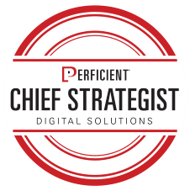What holds back marketers from creating one-to-one experiences? Well, a lot of things, it turns out. Lack of data, too much data, not understanding a customer’s journey, too much focus on journeys – the list is endless. In the past, we’ve created rules engines to try to create personalized experiences, but we are finding that rules engines are not enough. There are too many permutations that can be reasonably modeled in rules. 
Now we are turning to AI and machine learning as a way to get through the morass of data and turn it into useful knowledge that can help generate personalized experiences.
In this session at Sitecore Symposium 2018, Ramani Krishnan and Sathish Balakrishnan talked about personalization within Sitecore using machine learning. Some examples cited included Coca Cola pioneering segmentation, Amazon getting 10-30% lift in revenue from applying personalization.
Personalization Maturity Model
The speakers showed a maturity model for personalization.
- In the early stages, marketers use geolocation, visit frequency and similar measures.
- At the next stage, we start to apply personas, pattern cards, engagement values, and such.
- In the third state, we are integrating to CRM, looking a cross-channel behaviors, purchase history, etc.
- Finally, in the last stage of maturity, we turn to machine learning to drive personalization.
Given those stages, why not just jump to Machine Learning (ML)? Most people don’t know where to start, what to do, or how to maintain a ML environment. So, instead of manually creating an algorithm and having a machine work on data, point the machine to data and let the machine build the algorithm.
The ML approach
The ML approach is:
- Capture omni channel customer data – in Sitecore, xConnect helps collect the raw data
- Analyze and preprocess data – data has to be cleaned, scaled, enriched, and made into features or variables (like GeoIP, referrer, pages viewed, etc.)
- Select and train the ML model – using supervised, unsupervised, semi-supervised or deep learning
- Deploy ML web Service – convert the training model into a predictive production model, test and deploy
- Integrate with Sitecore
Best practices include getting your data, keep your first model simple and focus on getting the Sitecore pipeline right. MS Azure has good tools for experimenting with machine learning and generating a web service that can be called by Sitecore.
